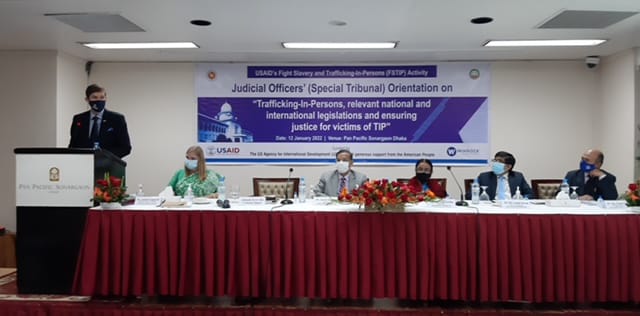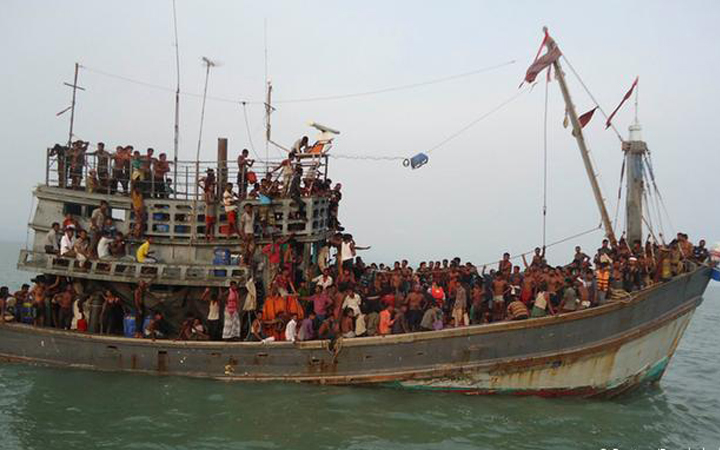President Xi accepts China’s interiors still abound with lawlessness, incidents of trafficking
Rural areas served as the base for the Chinese Communist Party before it won the civil war in 1949 under the leadership of Mao Zedong whose rallying cry used to be “Political power grows out of the barrel of a gun.” However, seventy-four-year later, incumbent General Secretary of the CPC and the country’s President Xi Jinping appears to be disillusioned with the situation in rural areas.
While lawlessness in the length and breadth of most Chinese villages has increased, anti- social elements are ruling the roost with incidents of abductions and trafficking of women and children are on the rise.
Chinese President Xi expressed his anguish over the state of affairs in the country’s rural areas in a statement he made while presiding over a seminar of the Chinese People’s Political Consultative Conference (CPPCC), China’s top political advisory body in March last year.
In the statement which has been made public first-time last week, Xi Jinping was quoted by South China Morning Post as saying that in China’s rural areas “underworld forces and other organisations have grown and spread, and have even taken control of village affairs and caused harm and that in some places, people don’t care village affairs.”
The Chinese President also expressed his shock over declining moral standards in villages. “Cases of abduction and trafficking of women and children have occurred repeatedly… and that moral standards have declined, integrity is not upheld, neighbourly relations are not harmonious, money worship and high bride price are prevalent,” Xi Jinping was quoted by the Hong Kong-based English daily newspaper as saying in that seminar last year.
The world still shudders in shock to remember the video of a dishevelled Chinese woman chained from her neck to a wall in a hut, mumbling incoherently and shivering in the winter cold. The woman, belonging to a village in the eastern province of Jiangsu, had given birth to eight children and the video that depicted her condition had gone viral in January last year. According to South China Morning Post, an official investigation later found the incident to be human trafficking.
China’s rural areas are abounded with stories of women trafficking and their forced marriages to local men. For this, the country’s decades of one-child policy and Chinese parents’ preference for a boy over a girl child are held responsible as they have led to creating enormously skewed gender ratios.
According to China’s last national census in 2020, there are just 100 women for every 105 men in the country, or 34.9 million more men than women. The skewed sex ratio, as per NPR, has exacerbated the practice of single men purchasing trafficked women from remote rural areas of Yunnan and Sichuan provinces or from Southeast Asian countries and North Korea.
The Chinese President cited “inadequate CPC control” in rural areas as the reason for the rise in such crimes in villages, while ignoring the fact that poverty, unemployment, and lack of quality education are, in fact, key factors behind the poor law and order situation in villages in the country.
According to data from the National Bureau of Statistics, nearly 500 million people live in more than two million villages in China. Poverty, lack of social safety net, stagnant income, decline in public services, unemployment, and lack of quality education hound rural areas in China, says various studies.
According to Foreign Policy, a political magazine which is published from Washington DC, despite successfully lifting millions of people out of poverty, China is haunted by urban and rural divide on many terms.
Urban hukou (resident permit) holders receive “higher benefits” than their rural counterparts, including access to better schools and hospitals, Foreign Policy said, highlighting glaring discriminatory practices in China. In terms of income also, people living in rural areas earn 40% less than their counterparts in urban areas, Boston Consulting Group said.
Analysts say it is all happening even as China, under its rural revitalisation plan launched in 2017, is committed to revamp rural areas by increasing prosperity, improving its ecology, modernise the agricultural sector—in consonance with Xi’s goal of propelling China to achieve global superpower status by 2050, just after the People’s Republic reaches its 100th birthday in 2049.
On account of poverty, illiteracy and rampant corruption, villages of provinces like Sichuan, Hunan, Hebei and Henan have turned into key turf areas of gangsters.
In 2017, as per The Atlantic, as many as 40 people were prosecuted for killing 17 people in Shisun village of Hunan province. On such grisly killings, a film ‘Mang Jing’ was also made in China. Detailing the poor law and order situation especially in remote villages of China, the American magazine said many villages in the country’s interior have developed a “criminal cottage industry involving anything from drugs to cyber fraud to counterfeiting.”
The Chinese President in his speech last year at the CPPCC called for a “sustained crackdown on gang crimes in the countryside.” But analysts say that though crime is primarily a law-and-order issue, it occurs when economic disparity increases and corruption takes a front seat in any public service. In addition to all this, withering of the CPC influence in rural areas is also cited as the reason for the lawlessness. Widespread lawlessness has grown in many of China’s villages in the last few decades because “once stringent Maoist discipline has withered, and often been replaced by an economic free-for-all that is devoid of public cohesion and shared ideals,” The New York Times said.
Source: The HK Post
11 Nov 2023,19:19

















 Live Tv
Live Tv




